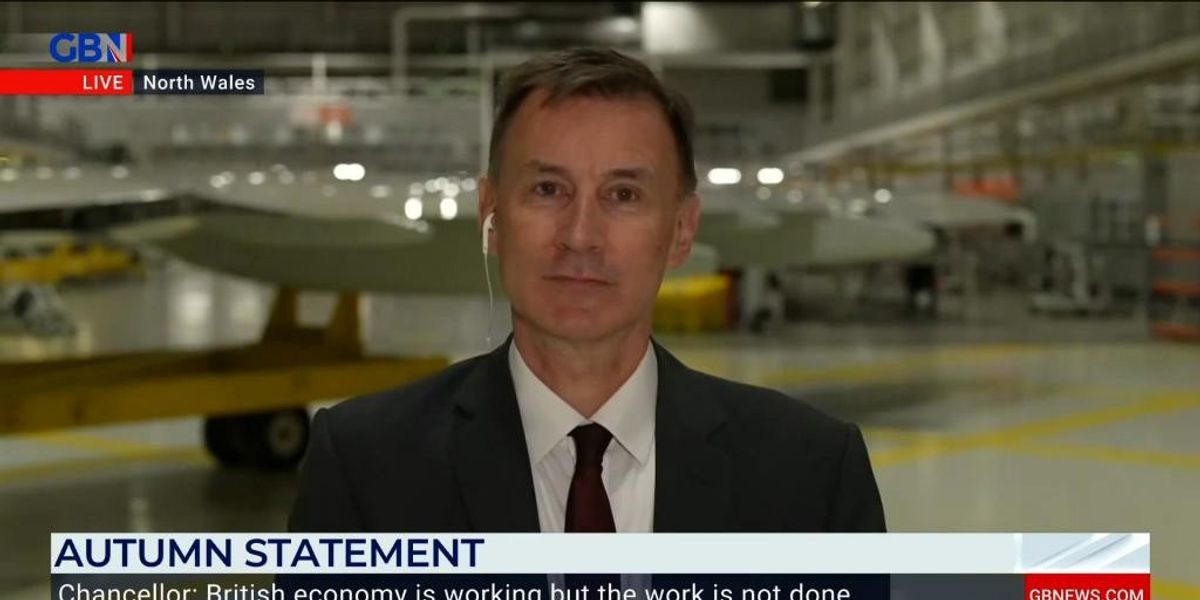Jeremy Hunt says voters trust the Tories over Labour on the economy – and said that this “dividing line” will become clear at the next General Election.
Speaking to Eamonn Holmes and Ellie Costello on GB News Breakfast, in the wake of yesterday’s Autumn Statement, the Chancellor also admitted some of his measures weren’t “crowd pleasers”.
But he insisted he was responding to what businesses had asked him to do, and suggested that Labour would increase the level of debt the UK has to bear.
Mr Hunt told GBNews: “When it comes to elections, people vote Conservative, because they think that we are going to take the right decisions for the long term of the economy. They fundamentally trust us on the economy. And I think yesterday we saw a very clear dividing line. I don’t want to use language that sounds too much like an economist, but we believe in supply side measures to boost the competitiveness of firms, companies, businesses operating in Britain. That’s the only long term way to raise salaries and raise living standards. Labour believe in demand side measures they want to increase borrowing by 28 billion pounds a year. We think that gives you a short term boost. But in the long run that raises debt and that raises the debt interest that we have to pay through our taxes. Interest rates are higher, and taxes are higher. So it’s a very different approach. And I think that we’ll be clear at the next election whenever we have that.”
Reflecting on his measures announced yesterday he continued: “The reduction in national insurance that will make a difference. But the real thing that I wanted to do yesterday was to transform our long term growth with those 110 measures. What I want to say to people is, if we’re going to reduce taxes in the future, if we’re going to fund the NHS, our schools, the really important public services, then we’ve got to get our economic growth up. And that’s why I chose to reduce taxes, not the taxes that are on the tip of everyone’s tongues, but things like full expensing for businesses
“It’s increasing our long term growth rate, so that we can get better jobs and higher living standards for people in the country.”
Standing by the Government’s support through the pandemic he added: “I think it was right to help families through a pandemic with a furlough scheme that protected 9 million jobs, I think was right to help families in the cost of living crisis, which is the biggest energy shock we’ve had since the 1970s. We’ve always been very honest that that has meant we’ve had to raise taxes in order to pay for those schemes. But now we are able to start bringing them down. And yes, there is a short term impact on growth when you’re tackling inflation, because that means that interest rates are higher, and that is reflected in the forecasts.
“But the measures that I’ve taken are what more than 200 businesses wrote to me to ask for, the big business organisations like the CBI said they were the single most transformative thing that I could do. They’re not particularly crowd pleasers. They’re not the tax cuts that are on the tip of everyone’s tongues like an income tax cut or inheritance tax, but they are the things that will make the biggest difference to our long term competitiveness.
“And I hope it relieves some pressure on families. You know, a typical teacher or a police officer will see an extra £630 next year because of the National Insurance cuts. We want to make sure we are growing going forward.”











